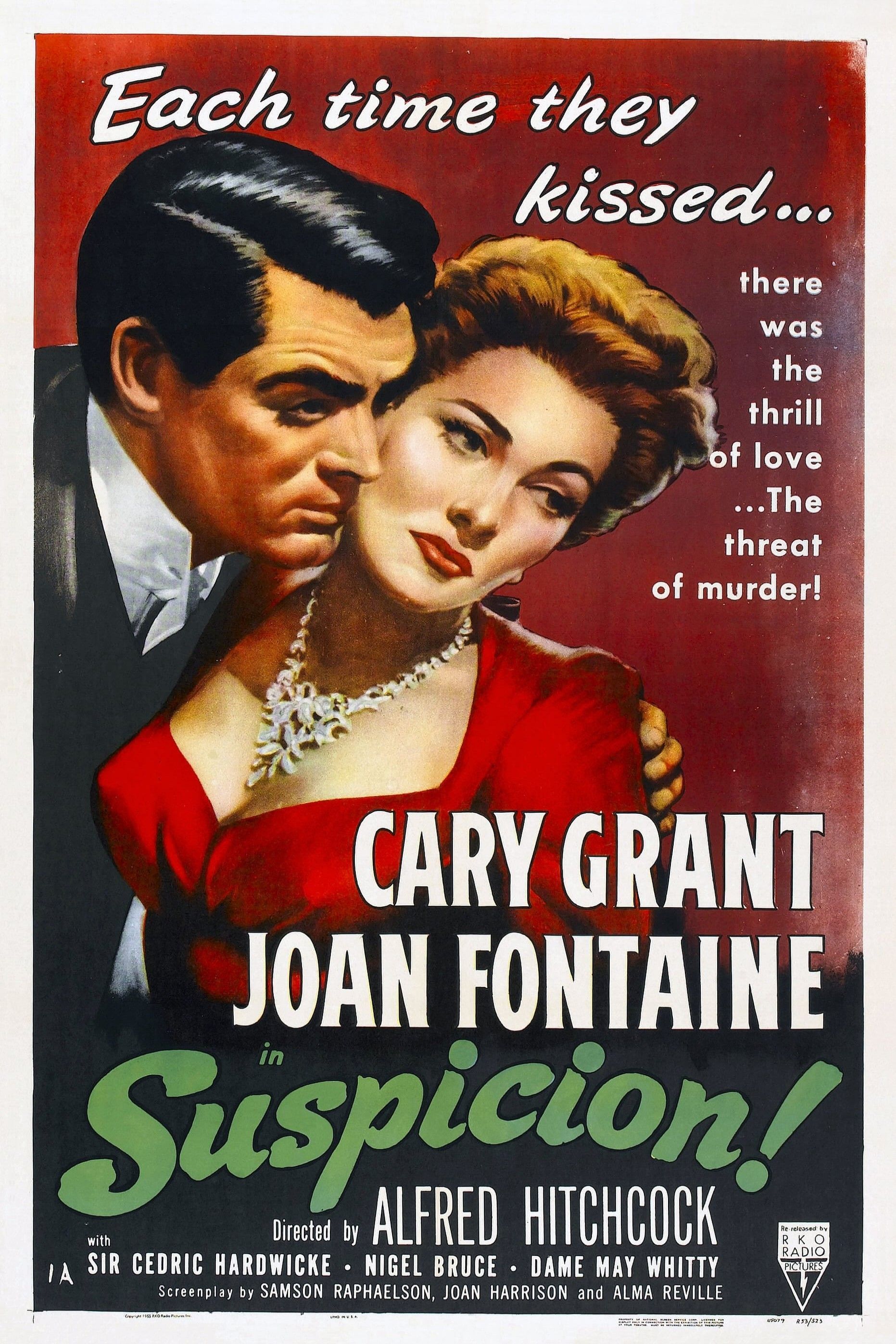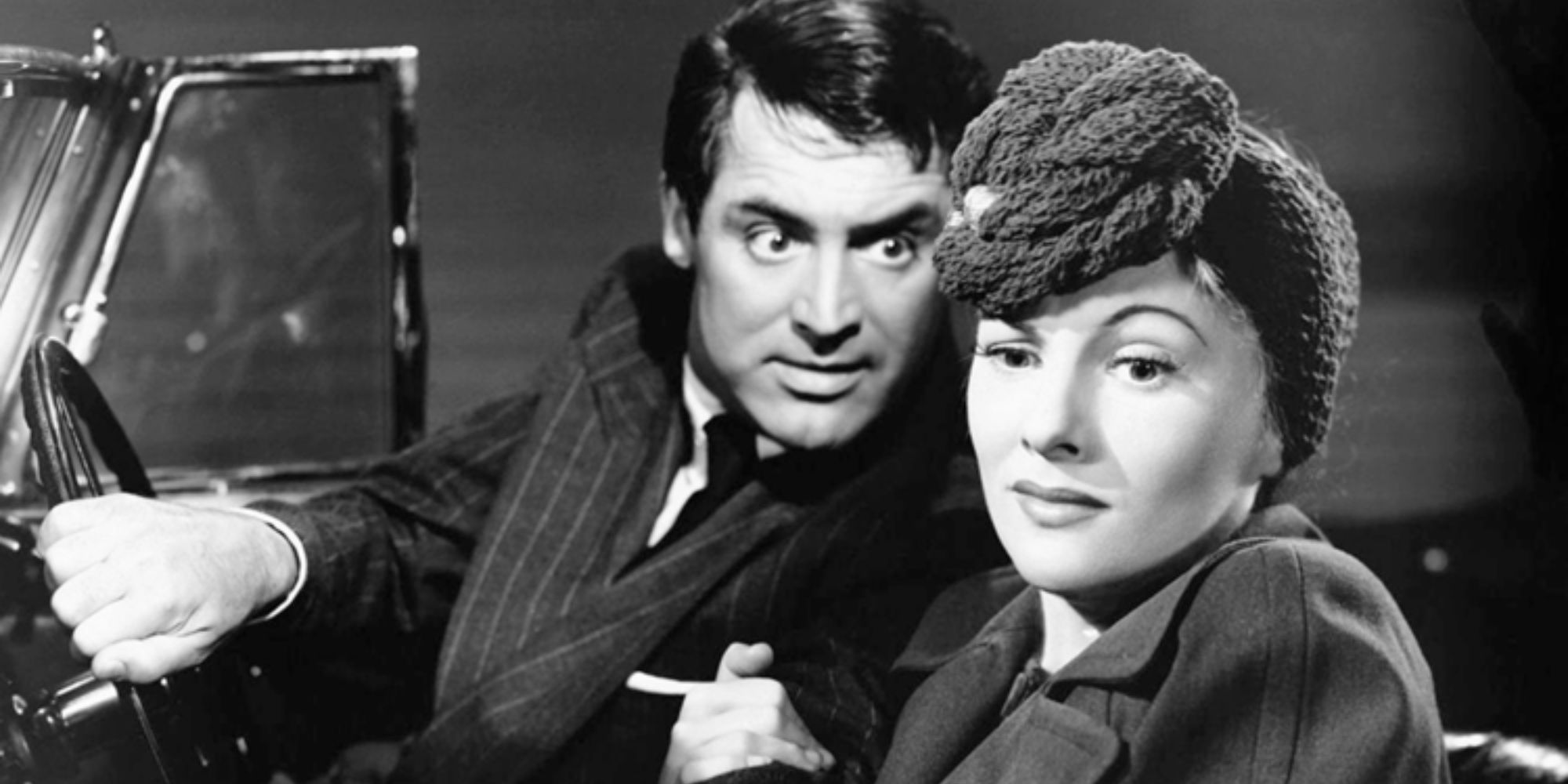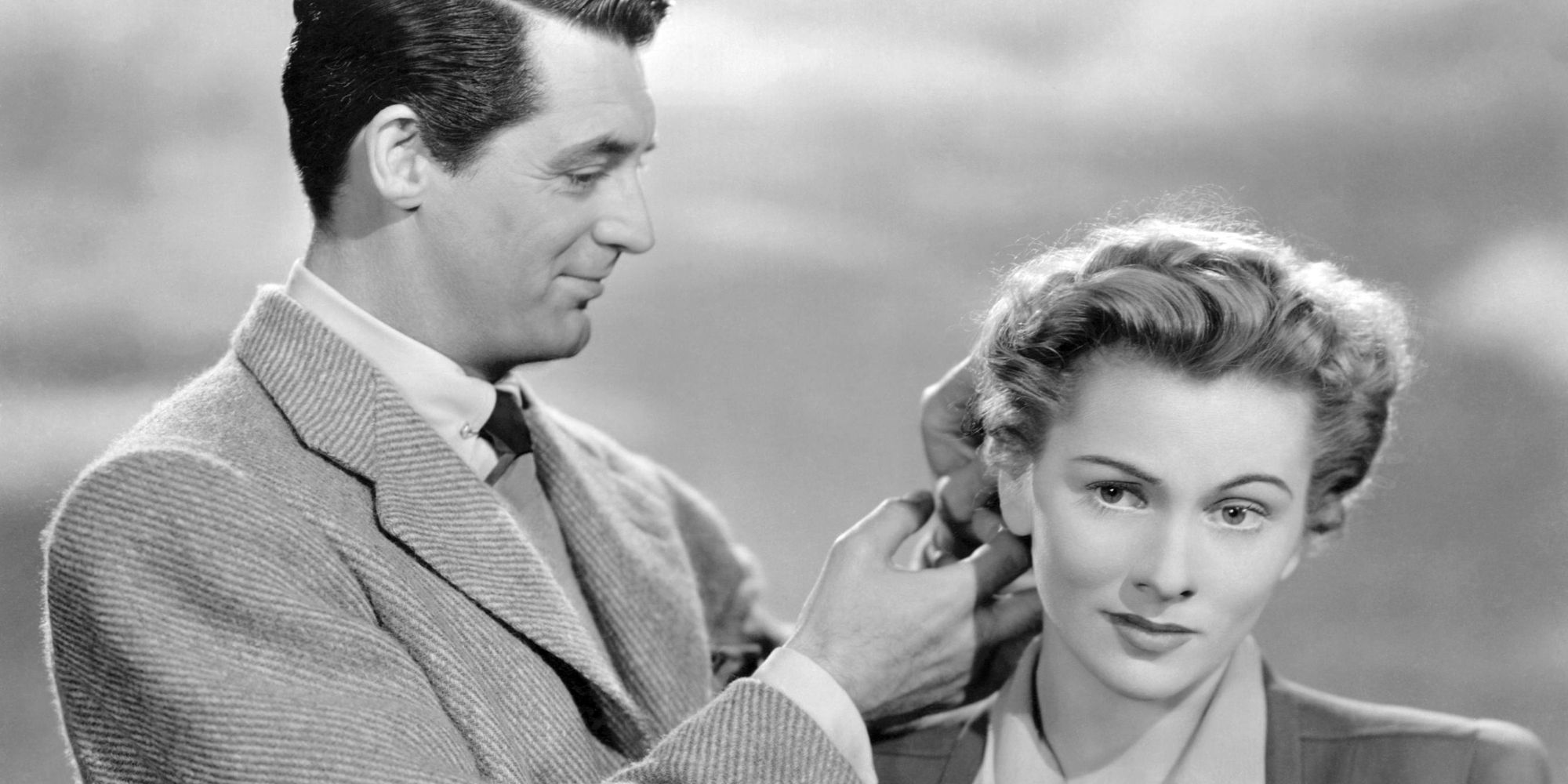One of the many attributes that made Alfred Hitchcock one of the best filmmakers to ever do it was his ability to make actors of all calibers fit into the shiveringly ironic mold that he often wanted. From heavy-hitter legends to dutiful character actors to total no-names, he was usually able to get everyone on the same macabre page, often leading to numerous iconic performances. That makes it so strange that, on the whole, actors in his films didn’t get much love from the Academy, with only a small handful of acting nominations in his filmography and a sole acting win. That win went to Joan Fontaine, who won Best Actress for her starring role in Suspicion, a chilling film that saw its heroine thrown into existential turmoil over a very untrustworthy partner.
What is ‘Suspicion’ About?
Lina (Fontaine) is a buttoned-up and wealthy woman who has lived a relatively stodgy life, until she meets Johnnie (Cary Grant). Johnnie does everything he can to sweep her off her feet, throwing out a number of warning signs that Lina chooses to ignore. Lina is totally enamored with his pursuit, feeling like she’s making the first proper choice in her cushy life, and the two quickly marry. But once the honeymoon phase is over, she learns that he’s actually a broke gambler and pathological liar who expects to bowl everyone over with his charm. Worse yet, she starts spotting hints that he may have nefarious plans to kill her for her money, but is she just overthinking this? It becomes a battle of wills between her newly rediscovered heart and her survival instincts that are constantly at work behind her eyes.
Joan Fontaine’s Performance Is Quietly Internal
What’s most surprising about Fontaine’s performance is how little it fits the standard mold of an “Oscar-worthy” performance. Bereft of any scene-stealing monologues or complicated progression, Lina is a woman who keeps even her most extreme anxieties and paranoia close to her chest, filtering every emotion through her pensive eyes. Everything about her is communicated through how frequently her eyes show you what’s really going on, while her body remains reserved and her face tends to try to reflect what the given social situation expects of her. Most of the film is a rather slow build-up towards a relatively brief climax, so the majority of the film’s tension comes from how Fontaine is intently watching herself as she watches every move Johnnie makes, as she’s trapped in a silent scream of confusion. She knows she’s smart enough to notice the red flags that Johnnie keeps presenting, but she believes so strongly in her love for him, and she desperately doesn’t want to give up on that. But the nagging doubt still lingers underneath all her efforts at projecting the domestic bliss she clearly craves.
But oh, how deeply she craves, and how nakedly. Hitchcock’s films love to explore how people’s secret desires dominate their rational behavior, and Fontaine’s performance is so riveting for how she straddles the melting line between demure restraint and erotic abandon. While displaying no overtly sexual actions, it’s clear how Lina lets her love for Johnnie wash over her and leaves her in a haze. Every lie she discovers shakes her to her core and punctures the puppy love she’s eager to lap up, her newly awoken desire clashing with Johnnie’s rapacious duplicity. Unlike most of the typical “Hitchcock blondes,”Lina remains entirely sympathetic and easy to read, taken across a wider spectrum of emotional vulnerability than Hitch usually showed interest in. Rather than being positioned as an object of male hunger, Fontaine is made to be an empathetic exposer of masculine incompetency, detailing a saga of internal torture just in her prolonged stare at Johnnie bringing her a glass of milk. It’s a performance made of dry ice that scalds you even as it seems to be frozen in terror, undoubtedly one of the highlights of Fontaine’s illustrious career.
Joan Fontaine’s Win Announced Her as a Major Star
In understanding why this would be the sole performance in an Alfred Hitchcock film to win an Oscar, it’s important to note how Joan Fontaine was being propped up by Hollywood as one of its newest stars. The Oscars have a habit of awarding Best Actress Oscars to younger actresses who have announced themselves as newly minted stars, and the Academy crowns them as such with an Oscar. You can see instances of this as recently as Emma Stone‘s first win for La La Land and Brie Larson‘s win for Room, and Fontaine fit that bill to a tee. Having made a name for herself the year prior in Hitchcock’s Best Picture-winning Rebecca, which she was also nominated for, Fontaine got the best reviews of her young career for playing Lina. By reteaming with Hitchcock with Suspicion, she showed how far she’d come as an actress in just one year, and was rewarded with the industry’s top accolade, which she capitalized on flawlessly. In the next few years, she’d star in some of the biggest movies of her career, with titles like The Constant Nymph, Jane Eyre, and Letter From an Unknown Woman all in the 1940s alone. All roles that explore the dangers of letting love dominate your field of vision, none of which she’d be able to create without her being the only person to win an Oscar under the direction of someone who should have won multiple Oscars.
Suspicion is available to rent on Amazon in the U.S.
Rent on Amazon

A shy young heiress marries a charming gentleman, and soon begins to suspect he is planning to murder her.
- Release Date
- November 14, 1941
- Cast
- Cary Grant , Joan Fontaine , Cedric Hardwicke , Nigel Bruce , May Whitty , Isabel Jeans , Heather Angel , Auriol Lee
- Runtime
- 99 Minutes

